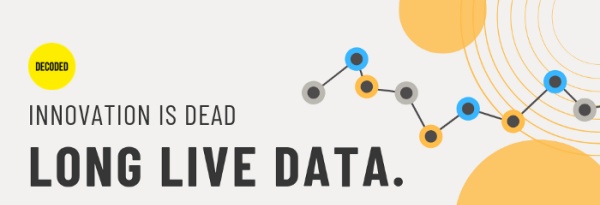WHAT stopped in 1996? Software innovation, or priorities?
Innovation. The devil is in where you look for it.
J. Edwards complains that it’s as if software progress hit a wall, and progress abruptly stopped in 1996. Back then, programmers were working on foundational programming languages, operating systems and other software technologies. Today, instead, the same space seems filled by just “useful incremental improvements on top of the foundational technologies that came before…" Nothing fundamentally new, just “clever repackaging and re-engineering prior inventions”.
Follow the money. Of course
This part of the complaint is spot on:
“What the hell happened in 1996?… the internet boom. Suddenly, for the first time ever, programmers could get rich quick. The smart ambitious people flooded into Silicon Valley… [but]… There is no room for technology invention in startups."
Academia? “Computer Science strongly disincentivizes risky long-range research. That’s not how you get tenure." Today, Computer Science is about “risk-aversion and hyper-professionalization”.
What really stagnates, or goes unseen

There is plenty of commentary about the death of innovation, from all possible points of view. Just look where I took the screenshots for this post, that is “Innovation is Dead” or (closer to this post)“Innovation is Dead, Long Live Data!"
As far as “stopping in 1996” goes…
There is a lot in that post that is just right, besides the “follow the money” part. One point that particularly resonates with me is the assertion that “There is no room for technology invention in startups”. See why here. One of the comments below that post is even more insightful: “Web 2.0 was not technological, it was a shift in business model to network effect capture." See here what that means, and implies.
This said, I see one problem, and one omission in that assessment of software innovation, or innovation in general. What should be disrupted first today, software, or toilets? Even sticking to software and hardware, “incremental” is not intrinsically bad. In these times, it may mean more REAL, needed innovation, more than lots of stuff that gets funded by venture capital. I mean, what’s wrong with repackaging? Just look at this “repackaging” of good, old AA/AAA batteries, for example.
The thing that is missing, unless one looks very closely between the lines, is explicit denounce of how all that “incremental repackaging”, regardless of how innovative is, or isn’t:
- has made the Web, and Web browsers, obscenely complex
- makes modern” websites much more short-lived, and fragile, than those of twenty years ago
Update 2021/01/09: Glad to see Edwards’s follow-up denouncing that “the only progress we get is the table scraps of the MegaTechCorps”, even if I don’t think it is the fault of Open Source. But that is a topic for another post.
Who writes this, why, and how to help
I am Marco Fioretti, tech writer and aspiring polymath doing human-digital research and popularization.
I do it because YOUR civil rights and the quality of YOUR life depend every year more on how software is used AROUND you.
To this end, I have already shared more than a million words on this blog, without any paywall or user tracking, and am sharing the next million through a newsletter, also without any paywall.
The more direct support I get, the more I can continue to inform for free parents, teachers, decision makers, and everybody else who should know more stuff like this. You can support me with paid subscriptions to my newsletter, donations via PayPal (mfioretti@nexaima.net) or LiberaPay, or in any of the other ways listed here.THANKS for your support!